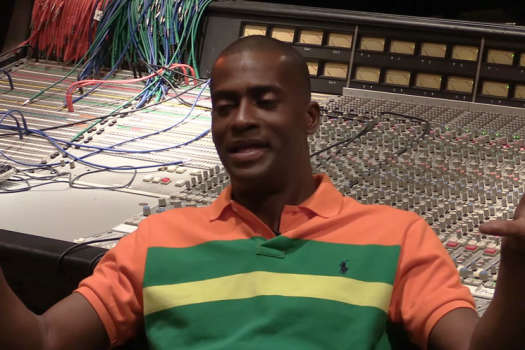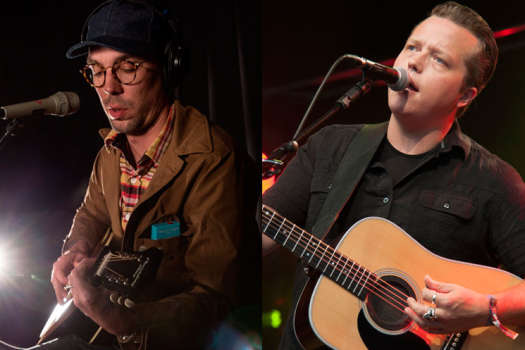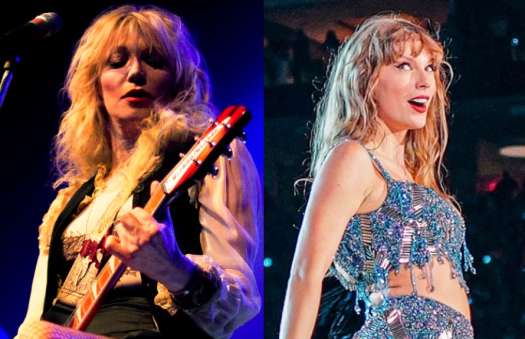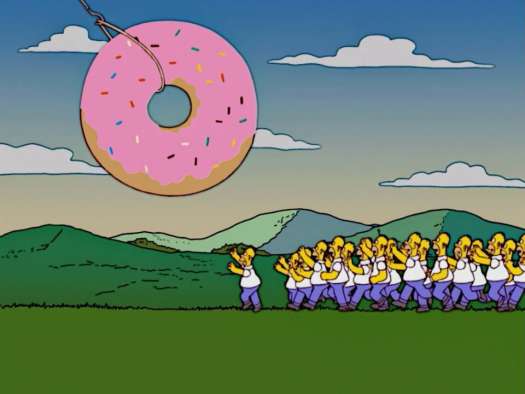I catch Chris Brown on his cell phone as hes navigating the New York subway system. For anyone else, an inconvenient time, but for the Toronto-born singer-songwriter, keyboardist and producer, managing a hectic schedule is part of life since moving to the Big Apple a decade ago.
At that point, Browns time was occupied with his band, CanRock cult heroes the Bourbon Tabernacle Choir, whose ranks also included Broken Social Scenes Andrew Whiteman. But it was the legacy of many of his musical heroes, that ultimately prompted Brown to relocate to New York City upon the demise of the Bourbons. Since then he has built a considerable catalogue of politically-charged soul-folk recordings with long-time partner (and BTC alum) Kate Fenner, and lately with the Citizens Band, his collaboration with NYC musical heavyweights Anton Fier, Tony Scherr and Teddy Kumple. Browns CV also includes tour stints with the Tragically Hip and Barenaked Ladies, and production work with outlaw country pioneer Steve Goodman and comedian Rick Moranis.
For Brown, the New York scene has provided more than enough fuel for his creative fire, but without the pressure to tour. "No matter what kind of music youre into, New York just obliterates genres, Brown says. "I had to shed my skin when we first came here, because the Bourbons were fairly successful in Canada. It became a matter of getting back to following the music where it was leading me, and playing to seven people on a Sunday night. Eventually, it leads you to people of a similar mind.
Along with his songwriting, Browns sizable chops on all variety of keyboards earned him a place in the community relatively quickly. He has always drawn admiration from his peers for lugging Hammond organs around, although now he has developed a network to ease transportation. "My favourite Hammond C-2 lives with me in Brooklyn, then I have an A that stays at the Living Room, where we gig a lot, and I have another one in Toronto to use when Im up there. When I became known for playing clavinet, I had a few given to me and I still try to buy them whenever I can. My main guitar is a 1952 Gibson Southern Jumbo that was passed down in my family, and Ive also got a 1943 Martin.
Brown admits that his love of vintage sounds inspires a large portion of his work. "The interesting thing is getting to know people who keep all this stuff running. Especially in the organ world, its a real vocation. The gear kind of leads you more deeply into your relationship with the music. Instruments get passed around and they all have stories that you can pick up on if you allow yourself to hear them.
When it comes to recording, which mostly occurs at his home studio in Brooklyn, Brown normally approaches it as an extension of his writing. "Ive always liked to work in a relaxed, familial setting, and basically write to tape, he says. "What really focused things was the Steve Goodman record I just did, which happened in the middle of a bunch of other projects, including the Citizens Band record and Kates solo record that will both be out shortly. The studio that [engineer] Lurch and I set up for that session has produced about 15 other records in the past year. Its really reinforced the notion that in New York you can be as busy as you want to be, so choose your battles.
His wealth of experience has given Brown the understanding of how to adapt to any situation he may find himself in. "I think that once the music stops, 70 percent of your gig is psychological and social, he says. "With the Citizens Band, and having Anton and Tony as the rhythm section, their sensibilities are tuned to an extreme degree. On one level youre making music together, but on another level, as bandleader, you want to leave room for everyone to do their thing. Ive been on both sides, and you have to know when to surrender to the music and when to exert some control.
He adds, "There were times when I definitely felt like I was thrown into the fire when Id sit in with some of these people Id always admired. But what I learned from that was actually an appreciation of where Id come from, through all the touring we did in Canada. You never recognise your own accent, so along with raising my own game, I feel like Ive been able to add something unique when I play with people here.
At that point, Browns time was occupied with his band, CanRock cult heroes the Bourbon Tabernacle Choir, whose ranks also included Broken Social Scenes Andrew Whiteman. But it was the legacy of many of his musical heroes, that ultimately prompted Brown to relocate to New York City upon the demise of the Bourbons. Since then he has built a considerable catalogue of politically-charged soul-folk recordings with long-time partner (and BTC alum) Kate Fenner, and lately with the Citizens Band, his collaboration with NYC musical heavyweights Anton Fier, Tony Scherr and Teddy Kumple. Browns CV also includes tour stints with the Tragically Hip and Barenaked Ladies, and production work with outlaw country pioneer Steve Goodman and comedian Rick Moranis.
For Brown, the New York scene has provided more than enough fuel for his creative fire, but without the pressure to tour. "No matter what kind of music youre into, New York just obliterates genres, Brown says. "I had to shed my skin when we first came here, because the Bourbons were fairly successful in Canada. It became a matter of getting back to following the music where it was leading me, and playing to seven people on a Sunday night. Eventually, it leads you to people of a similar mind.
Along with his songwriting, Browns sizable chops on all variety of keyboards earned him a place in the community relatively quickly. He has always drawn admiration from his peers for lugging Hammond organs around, although now he has developed a network to ease transportation. "My favourite Hammond C-2 lives with me in Brooklyn, then I have an A that stays at the Living Room, where we gig a lot, and I have another one in Toronto to use when Im up there. When I became known for playing clavinet, I had a few given to me and I still try to buy them whenever I can. My main guitar is a 1952 Gibson Southern Jumbo that was passed down in my family, and Ive also got a 1943 Martin.
Brown admits that his love of vintage sounds inspires a large portion of his work. "The interesting thing is getting to know people who keep all this stuff running. Especially in the organ world, its a real vocation. The gear kind of leads you more deeply into your relationship with the music. Instruments get passed around and they all have stories that you can pick up on if you allow yourself to hear them.
When it comes to recording, which mostly occurs at his home studio in Brooklyn, Brown normally approaches it as an extension of his writing. "Ive always liked to work in a relaxed, familial setting, and basically write to tape, he says. "What really focused things was the Steve Goodman record I just did, which happened in the middle of a bunch of other projects, including the Citizens Band record and Kates solo record that will both be out shortly. The studio that [engineer] Lurch and I set up for that session has produced about 15 other records in the past year. Its really reinforced the notion that in New York you can be as busy as you want to be, so choose your battles.
His wealth of experience has given Brown the understanding of how to adapt to any situation he may find himself in. "I think that once the music stops, 70 percent of your gig is psychological and social, he says. "With the Citizens Band, and having Anton and Tony as the rhythm section, their sensibilities are tuned to an extreme degree. On one level youre making music together, but on another level, as bandleader, you want to leave room for everyone to do their thing. Ive been on both sides, and you have to know when to surrender to the music and when to exert some control.
He adds, "There were times when I definitely felt like I was thrown into the fire when Id sit in with some of these people Id always admired. But what I learned from that was actually an appreciation of where Id come from, through all the touring we did in Canada. You never recognise your own accent, so along with raising my own game, I feel like Ive been able to add something unique when I play with people here.




